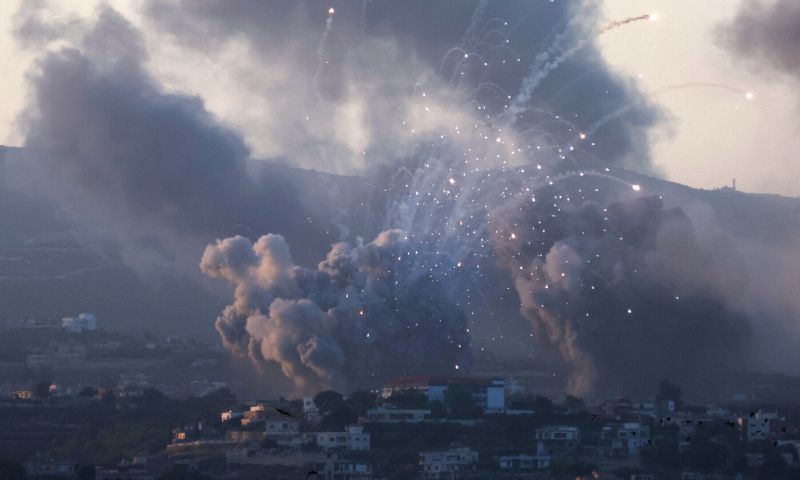GENEVA: The United Nations expressed alarm on Monday at the escalating violence between Israel and Hezbollah in Lebanon, warning that actions and rhetoric was escalating the Middle East conflict “to another dangerous level”.
During a press briefing, Ravina Shamdasani, spokeswoman for the UN human rights office, emphasized the seriousness of the developments in Lebanon. “We are extremely concerned, deeply worried about the escalation in Lebanon,” Shamdasani stated.
The spokeswoman said that the recent exchange of rocket fire and explosions in communication devices marks a significant increase in hostilities. “What we have been warning about all along, the regional spillover of the conflict appears to be materializing,” she added.
The current clashes follow nearly a year of near-daily cross-border skirmishes between Hezbollah and Israeli forces. Today’s strikes, described as the most intense since the outbreak of hostilities on October 8, have led to catastrophic consequences. Lebanon’s health ministry reported that Israeli airstrikes in the southern regions killed 182 people and injured over 727 on Monday alone.
At least 39 persons were killed and nearly 3,000 wounded the previous week when hand-held communication devices used by Hezbollah operatives detonated throughout Lebanon, an incident that Hezbollah has attributed to Israeli actions. Israel has not publicly commented on this accusation but has confirmed that it targeted over 300 Hezbollah sites in Monday’s military operations.
Shamdasani reiterated the UN’s condemnation of the violence, stressing that actions intended to spread terror among civilians could constitute war crimes. “The simultaneous targeting of thousands of individuals, whether they are civilians or members of armed groups, without knowledge of where these people will be … this is not acceptable under international law,” she stated.
The UN’s High Commissioner for Human Rights, Volker Turk, had previously addressed the Security Council, saying that the attacks on Hezbollah’s communication devices could violate international law.
Calls for de-escalation from the international community have intensified, yet Shamdasani lamented that rhetoric from both sides has instead escalated tensions. “What we have seen … is further rhetoric with further plans for escalation,” she said. “This needs to stop.”























